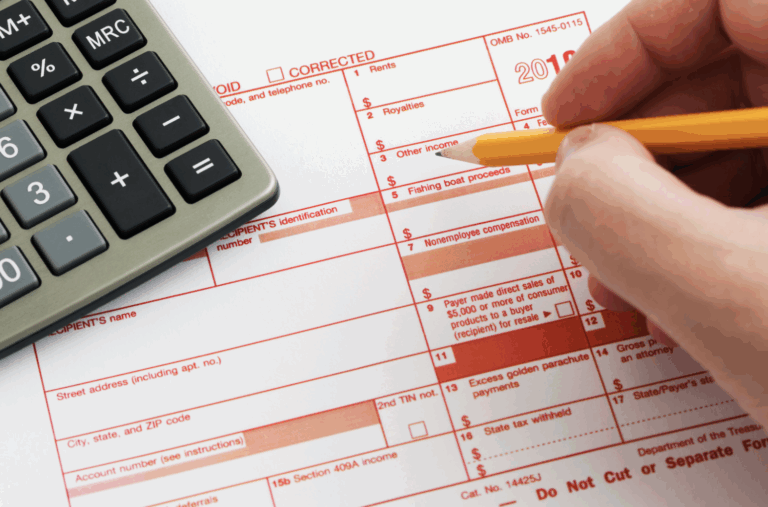Dealing with debt can be stressful and overwhelming. If you’ve stopped making payments on your debt for a long period of time, a creditor can bring a debt collection lawsuit against you. Knowing how to answer a summons without an attorney can be crucial in such situations.
If you’re sued by a debt collector, you still have options. Try not to panic and make sure you don’t ignore the lawsuit either. Even if you don’t have a lawyer, there are steps you can take to prevent the debt collector from resorting to more aggressive actions like wage garnishment.
For example, if you’ve failed to make payments on your credit card debt for six months, a credit card issuer may sell your debt to a collections agency or send the account to their internal collection unit.
Before you receive a court summons for a debt, a debt collector will typically try to collect the debt. Under the Fair Debt Collection Practices Act (FDCPA), a debt collector cannot try to harass or contact you at unusual times and places. (If the collections agency violates the FDCPA, that information may be used in your defense if you get sued by the collection agency.)
Eventually, if you continue to avoid paying the debt, the debt collection agency can sue you. Note the original creditor also has the ability to sue you.
Understanding a Summons
A summons is an official legal document notifying someone that they’ve been sued.
When you receive a court summons, it’s vital that you not ignore or refuse delivery of it. Depending on your location, you’ll typically have between 20 and 30 days to respond to the lawsuit. For example, in New York state, you must respond to the summons within 20 days if it was directly handed to you by a legal process server—or someone who serves legal documents. If it’s not, you then have 30 days to respond. This includes weekends and holidays.
If you don’t answer a summons within the specified time, the court can issue a default judgment against you. After a default judgment is issued against you, it can be harder to dispute the debt, and the debt collector may have the ability to garnish your wages, freeze your bank account, or put a lien on your property.
Crafting Your Response
Understanding the Legal Language and Terminology
The court summons will contain information about the court where the lawsuit was filed and who the plaintiffs and defendants are.
The creditor or debt collector suing you will be referred to as the ‘plaintiff’ while you, the debtor, will be known as the ‘defendant’. The summons is usually accompanied by a complaint in which the debt collector law firm lays out their claims against you. On the summons and complaint, you’ll also find a unique case number which is used to identify the specific lawsuit.
It’s important to read the lawsuit carefully and take note of any deadlines.
Initial Steps to Take After Receiving a Summons
To respond to the summons, you can either submit an answer or a make a motion to dismiss. When you submit an answer to the court, you address the allegations by either admitting, denying, or claiming that you don’t have knowledge about the allegation. If there is an allegation made by the plaintiff that you do not respond to, you are admitting to that allegation.
You also have the option of submitting a motion to dismiss where you request that the court dismiss the lawsuit. In it, you must provide reasons for why the debt should be dismissed like that the statute of limitations on collecting the debt has passed or you are not the actual debtor.
And if you have credit card debt, you may have the option to submit a motion for arbitration, but there must be an arbitration clause in your credit card agreement. Arbitration is a dispute resolution process that occurs outside of court.
Since the process may be pricey for collections agencies, they may prefer to avoid going through arbitration entirely and dismiss the matter.
Common Defenses in a Summons Response
In your answer, you’ll provide defenses against each of the allegations laid out in the complaint. In an affirmative defense, you admit to the allegation, but you bring facts or information that would make you not guilty.
You can also deny the allegations with a negative defense where you refute the allegations. Note any legal defenses you don’t include in the answer cannot be raised later in the case.
There are many potential defenses you could use in your answer or motion, but these are some common defenses in debt collection lawsuits:
- Statute of limitations. Typically, the statute of limitations in many states is between three and six years. If the statute of limitations has passed, a creditor can still try to collect the debt. However, if a debt collector sues after the statute of limitations has expired, it’s considered illegal under the FDCPA and you may be able to file a counterclaim.
- The debt doesn’t belong to you.
- The amount you owe is incorrect.
- The collection agency acted illegally according to the FDCPA. If a debt collector uses deceptive or unfair practices when pursuing you for the debt, you can use that as an affirmative defense in your answer.
Filing Your Response
Depending on the jurisdiction, you can file your response to the lawsuit either in-person, via mail with a written answer, or online. When you’re ready to file, you’ll want to make sure the documents have the right formatting—some courts offer sample answer forms or documents. If you would like more information, you can also go in-person to the court clerk’s office where the lawsuit was filed
When you’re ready to send the answer, make sure it’s signed and then create three copies of your answer: one to for yourself, another to send to the plaintiff or their lawyer, and one to file with the clerk of the court
Additionally, you’ll need to fill out and sign a certificate of service which indicates that you’ve provided a copy of your answer to the plaintiff. On the certificate of service, you’ll note the date that you plan to send the copy to the plaintiff or plaintiff’s attorney.
You’ll also typically be required to pay a filing fee, but if you cannot afford it, you could be eligible for a fee waiver.
Potential Outcomes
Going to court can be costly and time-consuming for both the creditor and you, so you may prefer settling the debt out of court. Collections agencies, especially, are open to settling out of court. These companies also typically prefer lump-sum payments.
To avoid a court case where the creditor believes they have the right to win the case, the creditor can also make a response to the summons and complaint. If the court agrees with the creditor, the case ends with a judgment entered against you and the creditor wins the debt lawsuit against you.
Yet if the court feels uncertain about the case and needs more information, they will deny the summary judgment motion and the case will proceed and there will likely be more court dates and the case can go to trial.
Seeking Additional Help
While it’s possible to file an answer on your own, debt help lawyers can provide legal advice and answer any legal questions regarding specific deadlines for when you need to file, what legal defenses you may have, and/or the statute of limitations on your debt.
Furthermore, a debt relief lawyer can help you decide whether you should consider settling out of court or even filing for bankruptcy. And if you don’t think you can afford a debt relief lawyer, there are some legal aid or nonprofit groups that assist low-income Americans. Some consumer lawyers also offer a free initial consultation too.At Tayne Law Group, we can help you through every step of the legal process with your debts. We have decades of experience negotiating with creditors, law firms, large national banks and debt collections agencies. Call the phone number (866) 890-7337 or fill out our short contact form, and for a free no obligation consult on your matter to see how we may be able to help you with your debt matters. Your information is never sold or shared and all calls are confidential.





